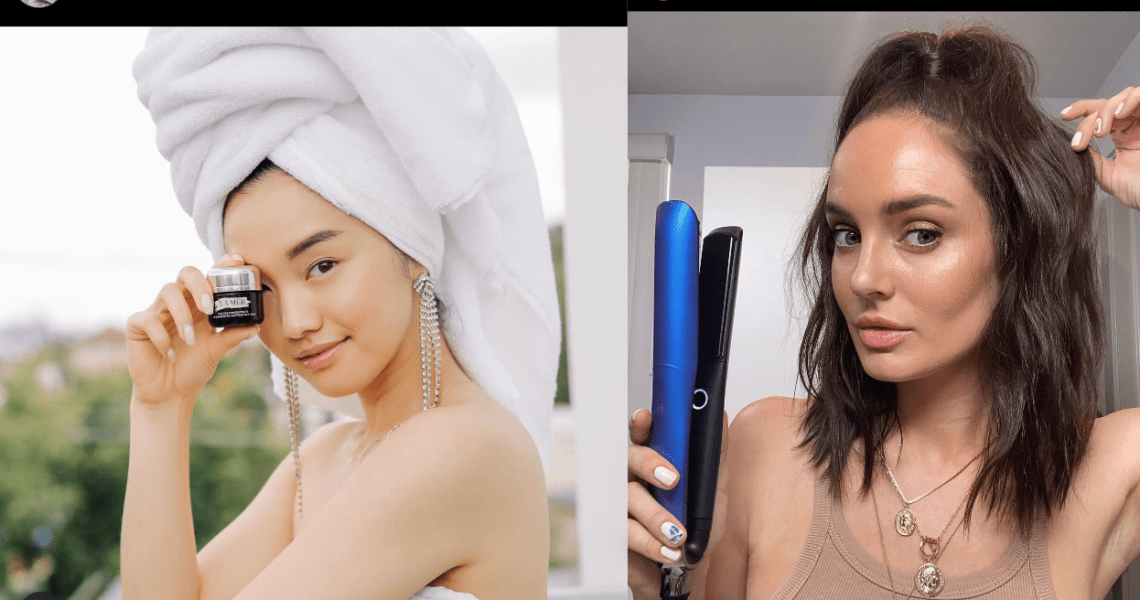Glossy is running a series of stories on how the fashion and beauty industries are preparing for a potential recession. We’re digging into how companies plan to manufacture, fundraise and run a retail fleet when the economy suffers.
Ashley Villa counts mega-influencers like Michelle Phan, Jenn Im, Chloe Morello and Nicol Concilio as clients at Rare Global, the talent management agency where she is CEO and partner. Villa steered her clients through those early, uncertain and fear-filled months of the pandemic. Now, with a potential recession on the horizon, Villa discussed what impact the pandemic had on influencer marketing and how a recession could change the industry.
You’ve seen economic downturns impact the influencer marketing industry before. How does it happen?
“In the beginning of the pandemic, everyone was so scared. Within the first week of our lockdown, brands were pulling deals left and right. There were budget cuts — if a contract wasn’t closed, we were seeing maybe it didn’t get closed. And [brands] were trying to lean on these force majeure clauses to potentially get out [of the contract], or saying, ‘Let’s do half.’ A lot of weird, crazy stuff was happening at that time, and every brand was different.
We had phone conversations with every brand that we were dealing with to see where they were at. We needed our clients to know, ‘Is this a valid deal that we’ve closed?’ ‘Is this deal going to happen?’ After all the conversations, there was only one brand that actually completely pulled a deal that was about to close.
It was like, let’s have a conversation. Maybe we even added a deliverable, to make this really count for [the brand]. There was a lot of negotiation to make it happen. I’m a closer, so I want to close it. And if it’s closed, I want to make sure it happens, and I want to make sure our clients get paid.
The pandemic turned the entire marketing world around. Influencer marketing was kind of the last piece, like, ‘Oh we have some extra budget. Let’s do some influencer marketing.’ After about a year, the budgets started to come back, and [the smart brands] were leaning in.”
Ad position: web_incontent_pos1
Did your clients change their day-to-day at all, as far as the work they did or the content they created?
“After three months, we really wanted to assess what our clients want and what their viewers want to see. I remember Chloe [Morello] even polled people [on what type of content they wanted to see].
For a lot of our clients who are beauty-focused, we started implementing new verticals like tech or finance. Food became a really big one, especially for Jen [Im], for example. We do push having multiple verticals, not just beauty. That was a change that Chloe [Morello] and I had strategized about before the pandemic — not just leaning into beauty, but being a lifestyle brand.”
If we go into a recession, would you expect that a similar thing will happen again, with brands getting scared and pulling back on partnerships?
“I don’t think so, because brands have lived it now. And they’re like, ‘OK, if it does happen, we’re not as shocked.’ Spending will change, but thinking about it ahead of time and planning is happening more. And the pandemic kind of proved that our industry is pandemic-proof, if you will, because brands realized that it was the only way to reach audiences.
Ad position: web_incontent_pos2
At some points of the pandemic, it was the only way to even shoot, for example. I remember when MAC reached out to Ellen [V Lora] and they asked her to actually shoot the deliverables to relaunch Ruby Woo, because they couldn’t get a photo studio. They couldn’t get photographers. They had to ask her to not only create the assets but promote them, too.”
I would assume that also is a boon for cost-efficiency, just in general. Did you see other cost-efficient strategies for brands working with influencers?
“It was interesting because, as a management company, we actually reached out to brands during the pandemic and asked how we could support them outside of money. We wanted to let the brands that we had good relationships with know that we still wanted to work with them, even if they had pulled budget. So, for example, with Too Faced, a couple of our clients just did free [Instagram] Lives with them.”
What would a recession change influencer marketing?
“I don’t think it’s going to be [like], ‘Oh my god, we’re having a recession.’ I think it’s going to be more of a slow build. People are going to keep talking about it and being aware of it, so there’s not gonna be that slam day, like when suddenly we were all on lockdown.
But I do think that brands are going to take a close look at their budgets, and they’re going to think about the type of content creators that they want to work with. It’s not going to be, ‘We’ll see if it works.’ [Instead] it’s going to be more about leaning into the [data] platforms that help them analyze ROI and EMV. Brands can lean on [these platforms] to figure out who already likes this brand. Brands want to hit the newest TikTokers, yes, but then they see who actually has posted about the brand, and who actually has a natural affinity and love for the brand. They may lean into those [creators] and use that data to facilitate partnerships.”




